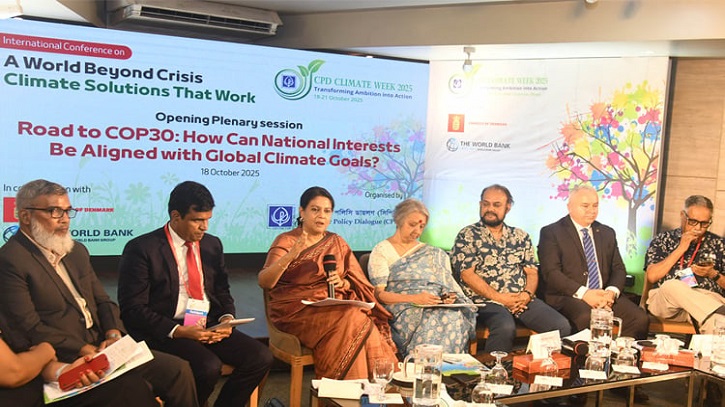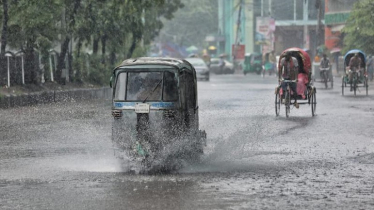
DHAKA: Syeda Rizwana Hasan, Advisor on Environment, Forests, Climate Change, and Water Resources, announced a mandate for all government institutions to transition to renewable energy within the next two to three years, setting an example for the entire nation.
Speaking as the Chief Guest at the inaugural session of the international conference, 'Road to COP-30: How Can National Interests Be Aligned with Global Climate Goals,' held at BRAC Centre Inn in Dhaka, she stressed that reducing emissions requires ensuring "responsible consumption, not just production."
Underlining the theme of the conference, 'A World Beyond Crisis: Climate Solutions That Work,' the Environmental Advisor called for the adoption of eco-friendly strategies across all sectors, emphasizing the need for sustainable consumption and production (SCP).
The Advisor mentioned that the Department of Environment (DoE), with support from the World Bank, is constructing "green office buildings" in various regions and developing models for energy-efficient, eco-friendly buildings in collaboration with architects and engineers.
She stated that "double counting" in climate finance and a weak global governance structure have created a "trust deficit" and hindered the flow of adaptation support. She commented that relying solely on technology transfer will not solve the problem if emissions from major economies continue to rise.
She also announced that four working groups have been formed under the newly established Bangladesh Climate Development Partnership (BCDP), with instructions to include representatives from civil society and academia to provide technical and policy support.
Addressing the environmental damage caused by brick kilns, the Advisor urged the use of alternative construction materials to reduce carbon emissions, protect agricultural land, and prevent hill cutting. She specifically suggested using silt dredged from riverbeds instead of fertile topsoil for brick manufacturing.
Emphasizing the importance of adaptation measures, she highlighted the critical need for coastal afforestation, rainwater harvesting, and low-cost salinity removal technologies to enhance resilience in climate-vulnerable coastal areas. She appealed to development partners to increase financial and technical support for implementing local solutions in Bangladesh.
The discussion, chaired by Ms. Khushi Kabir, a Member of the CPD Board of Trustees, featured speeches by Dr. Ainun Nishat, Advisor to the Centre for Climate Change and Environmental Research at BRAC University; Dr. Shah Abdul Sadi, Deputy Secretary of the Economic Relations Division (ERD); Md. Ziaul Haque, Director of the Department of Environment; Ulrich Kleppmann, Head of Development Cooperation at the German Embassy; Mohammad Sohel, Director of BGMEA; Shirin Sultana Lira, Programme Manager at the Swiss Embassy; and Mousumi Parveen, Senior Climate Change Officer at the Asian Development Bank (ADB).





